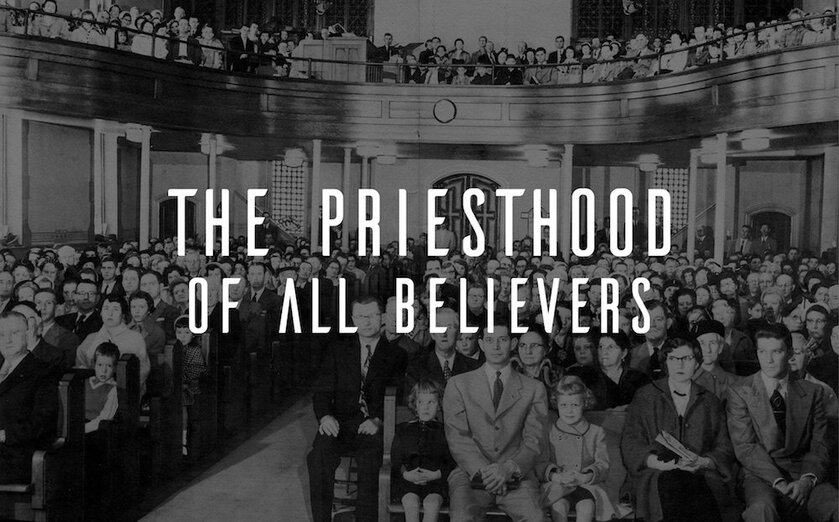God's Divine Patience: The Cost of Keeping the Feast
Luke 15:7
"Just so, I tell you, there will be more joy in heaven over one sinner who repents than over ninety-nine righteous persons who need no repentance."
So, here we have Jesus teaching the gospel to the quisling publicans and "sinners". Luke 15:7 sits right in the heart of Jesus’ parable of the lost sheep, where He’s emphasizing God’s relentless love for the wayward sinner and the joy that erupts in heaven when even one person turns back to Him. It’s like Jesus saw past the "quisling" stigma and straight into their potential for redemption. And it's amazing that many publicans are attracted to Jesus. The Apostle Matthew was a publican, as was Zacchaeus. In fact, after meeting with Jesus who picked him out of the crowd, (out of a tree to be precise), Zacchaeus has a complete conversion, a manifest turn around. He offers to take half his income and give it to the poor and repay anyone he's cheated in the past. Zacchaeus is a standout example, isn’t he. Climbing that sycamore tree just to catch a glimpse of Jesus, then getting singled out by the Savior Himself, it’s a moment of divine pursuit. Zacchaeus truly is the lost sheep that Jesus was talking about.
Jesus’ magnetic pull for the publicans and sinners, contrasted sharply with the Pharisees’ skepticism. These publicans were attracted to Jesus because he offered them hope. And meanwhile the Pharisees were looking for Jesus to slip up. So some come to hear his message of hope and others are there in the hopes of hearing his blasphemous remarks.
These publicans, despised as collaborators with Rome and extortionists, found in Jesus something the Pharisees’ rigid rules couldn’t offer: a fresh start, a place in God’s story. The Pharisees, meanwhile, are almost a foil in this scene, watching, judging, missing the joy of heaven because they’re too busy guarding their own righteousness.
The Pharisees are like sour apples, they're grumbling and grimacing while Jesus rolls out these parables to shake them up. It’s like Jesus is doubling down on His point, "You don’t get it yet, do you? Let me tell you another one." And he tells them about a woman who finds her lost coin. she’s not some rich landowner; those coins might’ve been her whole livelihood, maybe even her dowry. Losing one isn’t trivial, so she lights the lamp, grabs the broom, and turns the house upside down until she finds it. Jesus is telling these sour apples that the Father sees his creation as a precious jewel. And he'll go to any lengths to find them when they're lost. Then, the celebration! She’s calling her friends and neighbors, throwing a little party over one coin. It’s extravagant, almost wasteful, and that’s the genius of it. It's heavens reckless joy over even one sinner who repents. The Pharisees, with their sour faces, probably didn’t know what to do with that. Their religion isn't trying to chase after the lost in order to find them and save them. Certainly not trying to party with them. In fact they're working diligently to find them and punish them.
And then Jesus tells them a story about,
"There was a man who had two sons."
The parable of the prodigal son (verses 11-32). Jesus is on a roll, layering these stories to hit the Pharisees from every angle while the publicans and sinners lean in closer. After the lost sheep and the lost coin, He goes big with this one: a father, two sons, and a scandalous display of grace that must’ve made those sour apples squirm.
You’ve got the younger son demanding his inheritance, basically telling his father, "I wish you were dead so I could have what’s mine." The young man quickly squandered it. And he ends up slopping pigs, starving for their pods. Then the pivot, the prodigal "comes to himself" (v. 17), rehearses his apology, and drags his sorry-self back home. He offers to serve his dad as one of his slaves. But the father received him as one who was dead but now is alive again. And in a very telling manner he orders his slaves to bring clothes and shoes for his son's feet, (a slave would never have been given shoes). So, the father lavished his love upon his son, grace upon grace.
The prodigal son’s story is such a gut-wrenching arc. That opening move, demanding the inheritance, is such a heartbreaking slap in the face, a cultural grenade. He’s not just asking for money; he’s severing ties, and building boundaries between himself and his father. It's truly heartbreaking for me to read having had my own children treat me in this way. Not for an inheritance but for other selfish reasons. I can completely understand the father's feelings in this situation. And I can also understand his extravagant love when the son returns. He wants to receive him with all his heart, he truly wants that. Day after day he's thought about him. Argued in his head with him. Longed to make him understand. And he's had to try and live his life as best he can without his son. It's truly gut wrenching for me to see.
And his son, he’s not just asking for money; he’s severing all ties, saying, "You’re dead to me."
So, who really came back to life?
From my perspective the son does indeed but also the father. His life is made whole again. In part his celebration of joy is coming from a restorative spirit of love and a life reborn in himself. The way it echoes in the father’s pain. It’s not just about the money or the rebellion; it’s the rejection, the "you’re dead to me" that cuts deepest. You're not of value to him. He rejected you and went his own way. And his other son who remained on the farm was also at odds with the father. Both boys giving the old man a hard time because of the things he does and the words he says or doesn't say I suppose. We really don't know what the father might have done prior to this. Maybe something, or maybe the boys are upset about the things he didn't do or say. Obviously, the elder son feels like dad wasn't mindful of him.
It’s a double blow from both sons, each in their own way telling the father, "You’re not enough." The younger son’s "you’re dead to me" stabs deep, a dismissal of the father’s value as he storms off to chase his own desires. But then there’s the older son, the one who stayed, simmering with resentment, giving the old man grief over every move, every word. It’s a relentless kind of heartbreak, neither son sees the father for who he is, only what he can give or what he fails to be in their eyes.
These sons, at some point, are both a type of Pharisees. The younger son, with his reckless rebellion, mirrors the Pharisees’ accusation against the "sinners" Jesus hangs out with; selfish, dismissive of the father’s ways, chasing their own agendas. He’s not a Pharisee in title, but his "you’re dead to me" attitude reflects the way they reject God’s heart for the lost, prioritizing their own rules over relationship.
Then the older son, he’s the Pharisee incarnate. Dutiful on the outside, staying on the farm, but inside? Bitter, entitled, judging the father’s grace toward the prodigal (Luke 15:29-30). "I’ve slaved for you all these years, and you never gave me a goat!" (Notice he calls himself a slave), that’s the Pharisees’ voice, clutching their righteousness, resenting the party for the publicans and sinners. They’re physically close to the father, but their hearts are miles away, just like the religious elite scowling at Jesus’ mercy.
The Pharisees miss the "joy in heaven" because they’re stuck in the older son’s shoes, they're grumbling while the father celebrates. The father, then, becomes a type of Christ, enduring their hardness, offering grace anyway. This is the message for us all. Be like the father, be willing to forgive and forget. Don't shut down or shut out grace. Though pride tells the father that he's just going to move on with his life, grace tells him to receive them with grace when the opportunity comes home. The pain of rejection from ones own kids is like nothing I've ever experienced before. My entire childhood I wished I had a family that loved me. And to then be blessed with kids and have them, (my family I longed for), reject me like I'm a stranger. Its truly heartbreaking. And maybe it kind of parallels God’s ache over the Pharisees’ coldness, yet He keeps the feast ready.
For me it’s a lived echo of the father’s ache, and maybe God’s too. The Pharisees, like the older son, stand outside the feast, arms crossed, blind to the father’s joy. Even the younger son’s initial rebellion mirrors the Pharisees dismissal of God’s ways. And yet, he keeps the feast ready, day after day, longing for them to come in, just like the father scanning the horizon.
The father's joy and the celebration isn’t cheap; it’s born from a love that’s endured the coldness and still waits. And knowing this pain it makes me wonder, what does it cost God to keep the feast ready, knowing that some won’t come?
The father in the parable becomes a living portrait of God's divine patience, a steady thread that runs through his every move, reflecting God’s enduring heart toward the Pharisees, the publicans, and all of us. The father could have railed on the boy when he returned. He could have finally had his chance to set the record straight and get his justice. But the father didn't lash out when the younger son demands his inheritance, essentially wishing him dead. I can only admire the father, because I'm a complete failure on that score. He lets him go, hands him the cash, watches him walk away, knowing full well the train wreck that’s coming. And when he returns, he never mentions it again except to say,
Luke 15:24
"For this my son was dead, and is alive again; he was lost, and is found."
He does acknowledge the rift. And the consequences. He does mention it, but not in judgment, only to pin it as the reason for his joy.
The father’s restraint is almost otherworldly, especially when I contrast it with my own admission. That moment when the son returns, filthy and broken, is ripe for a reckoning. The father could’ve unloaded years of pent-up hurt, laid into him with "I told you so" or "How dare you?", and who’d blame him?
He’d been rejected, treated as dead, left to stew in the wreckage. Justice could’ve been his. But he doesn’t take it. That’s where his patience shines, and it’s where we can hopefully see God’s heart break through. Instead, he runs, undignified, vulnerable, and wraps the boy in mercy before a word’s ever spoken (Luke 15:20).
That’s patience turned inside out, not ignoring the pain, but redeeming it. And I pray every day that I can live up to this divine standard. I have my doubts that I'll succeed, but with God all things are possible.
Pray for me.




















